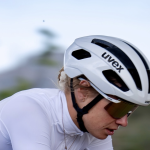Wolverine World Wide Inc. provided its outlook for fiscal year 2018 including its investment plan to drive its new GLOBAL GROWTH AGENDA, along with details on the expected positive impact of U.S. tax reform and its WAY FORWARD transformation. The company also announced certain preliminary financial results for the fiscal year ended December 30, 2017, including special charges recognized in the fourth quarter.
FISCAL 2018 OUTLOOK
Building off of its strong performance in 2017, and the ongoing benefits expected from the WOLVERINE WAY FORWARD transformation, Wolverine expects to deliver mid-single-digit underlying revenue growth in 2018, achieve its 12 percent adjusted operating margin target even with significant incremental investments to drive future growth and recognize meaningful benefits from recent U.S. corporate tax reform.
“The company has been keenly focused on operational excellence, improving our brand platforms and portfolio management over the past two years,” said Blake W. Krueger, Wolverine Worldwide’s chairman, chief executive officer and president. “We are in the last innings of completing our work, and we expect this important effort will allow us to achieve our operating margin target ahead of schedule while creating the financial capacity to invest in key growth initiatives. As we look ahead, we will focus on acting with speed and urgency to build craveable brands, expanding our product innovation pipeline and delivering accelerated growth in both our direct-to-consumer and international businesses.”
The company’s outlook for fiscal 2018 is included below:
- Revenue in the range of $2.24 billion to $2.32 billion, a reported decline of 1.3 percent and underlying growth of nearly six percent at the high-end of the range.
- Incremental investments of $40 million to $45 million to fuel growth.
- Reported operating margin of 11.6 percent, which includes approximately $8 million to $12 million of costs related to the legacy environmental issue discussed in more detail below. Adjusted operating margin of 12.0 percent, inclusive of the incremental investment spend.
- An effective tax rate in the range of 18 percent to 21 percent.
- Reported diluted earnings per share in the range of $1.87 to $1.97. Adjusted diluted earnings per share in the range of $1.95 to $2.05.
- Cash from operations in the range of approximately $230 million to $250 million.
The company expects to deliver its 2018 underlying revenue outlook through eCommerce growth of at least 20 percent, high-single-digit growth in its International business, and low-single-digit growth in its U.S. wholesale business. During 2018, the company will execute on its GLOBAL GROWTH AGENDA, which includes $40 million to $45 million of incremental investments to directly support product innovation and speed, demand creation to deepen emotional connections with consumers and new talent and tools to better position the company to compete and win in the “New Normal.”
IMPACT OF 2017 TAX REFORM
On December 22, 2017, the Tax Cuts and Jobs Act (TCJA) was passed, significantly changing U.S. tax law. This tax reform is expected to result in material positive benefits for Wolverine. The 2018 effective tax rate is expected to be in the range of 18 percent to 21 percent. This should result in a reduction in cash taxes of approximately $18 million to $20 million. In addition, the company now expects to repatriate approximately $300 million of cash currently held in non-U.S. subsidiaries, and will now have the ability to repatriate future overseas cash balances with minimal U.S. tax cost.
In the fourth quarter of fiscal 2017, the company expects the TCJA to result in a one-time tax expense of approximately $9 million ($0.09 per share). This includes approximately $58 million related to the taxation of unremitted earnings of non-U.S. subsidiaries, which will be paid over 8 years, and $3 million of other related taxes. This is partially offset by a non-cash adjustment of $52 million to remeasure deferred tax balances at the new corporate rate.
These estimates are preliminary because uncertainty remains regarding the impact of the TCJA as a result of factors including future regulatory and rulemaking processes, the prospects of additional corrective or supplemental legislation, potential trade or other factors.
FISCAL 2017 PRELIMINARY, UNAUDITED RESULTS
“We are pleased to report preliminary revenue for fiscal 2017 of $2.35 billion, at the top end of our full-year outlook entering the year. We expect fiscal 2017 adjusted diluted earnings per share at the high end of our previous earnings outlook of $1.60 to $1.65,” stated Mike Stornant, senior vice president and chief financial officer. “The company has been very proactive and has successfully navigated the challenging and fast-changing global retail marketplace, something we’ve been calling the ‘New Normal’ environment for several years. We have focused on operational excellence and addressing underperforming segments of our business. The result is a stronger portfolio that is now positioned to be more profitable and generate sustainable growth.”
The 2017 reported financial results will include certain costs related to the company’s global restructuring and transformation activities, including significant store closures during the year. In addition, the company’s reported financial results will include one-time costs related to recent changes in the U.S. tax law as noted above, and a non-cash impairment of indefinite-lived intangible assets and environmental remediation costs which are described in more detail below. This will result in fiscal 2017 reported diluted earnings (loss) per share in the range of ($0.04) to $0.01.
Non-Cash Impairment
Based on the company’s annual goodwill and indefinite-lived intangible asset impairment test, the company has preliminarily recognized a non-cash impairment charge of approximately $69 million ($0.45 per share) related to the Sperry indefinite-lived trade name in fiscal 2017. This represents approximately 12 percent of the trade name value previously reflected in the company’s balance sheet. The long-term assumptions used to estimate the fair value of the Sperry trade name valuation have been reassessed to reflect current market trends in the boat shoe category. The company continues to expect Sperry to return to growth in the second half of 2018.
Environmental Update
Over the last year, the company has been working through a legacy issue related to its former Tannery operation and related disposal sites. The company is cooperating with local, state and federal authorities to evaluate these sites for the presence and impact of PFOA and PFOS, two of the family of compounds known as per‐ and polyflouroalkyl substances (PFAS). PFOA and PFOS were used for many decades in commercial products like firefighting foams and metal plating, and in common consumer items like food wrappers, microwave popcorn bags, pizza boxes, Teflon, carpets and 3Ms Scotchgard. Due to their widespread use over such a long period of time, PFOA and PFOS can be found virtually everywhere and in everyone to some degree.
Like thousands of other companies and millions of consumers, the company purchased Scotchgard from 3M and relied on 3M’s assurances to Wolverine, the EPA, FDA, scientific bodies and the public that there were no adverse effects on human health from Scotchgard containing PFOA and PFOS, a position 3M maintains today. Despite decades of study and millions of dollars of research, human health effects from PFOA and PFOS are unknown, and no human studies have proven that exposure by an individual to PFOA or PFOS causes any illness.
Wolverine’s former tannery operations closed in 2009, and over the last year the company has been working with state, local and federal authorities to test area groundwater for the possible presence of PFOA and PFOS. Wolverine has taken proactive and immediate steps to provide drinking water solutions for impacted residents in our community while more testing and evaluation is completed. The actions taken by the company have been beyond those voluntarily taken by other companies or the federal government facing similar circumstances. The company is working in full cooperation with federal, state and local officials to address these legacy issues, and it will continue to be part of the long-term solution to provide our community the confidence it deserves in its drinking water.
Based on the actions taken and the ongoing testing and monitoring currently expected to take place in the future to comply with recent regulatory actions, the company expects to accrue environmental remediation costs of $30 million to $35 million ($0.24 to $0.28 per share) in fiscal 2017, of which $13 million to $16 million is expected to be paid in fiscal 2018 with the remainder to be paid in 2019 and beyond. In addition to environmental remediation costs estimated here, the company expects to incur $8 million to $12 million in fiscal 2018 for legal, consulting and other costs related to this legacy environmental issue. The environmental costs discussed are estimates and actual amounts could differ significantly in the future as circumstances evolve. The company has not reserved amounts for any non-remediation related legal claims related to this matter, as such amounts cannot be estimated at this time.
The company intends to pursue recovery of environmental remediation costs incurred from other parties, including insurance carriers that provided coverage during the relevant periods. The above cost estimates do not include any possible future recovery from these parties.
NON-GAAP FINANCIAL MEASURES
This release contains certain non-GAAP financial measures. References to “underlying” revenue for fiscal 2017 and fiscal 2018 indicate reported revenue adjusted for the impact of foreign exchange, the impact of retail store closures and the transition of Stride Rite to a license business model and for 2018 guidance the sale of the Sebago brand and the sale of the Department of Defense business. Measures referred to as “adjusted” financial results exclude restructuring and impairment costs, organizational transformation costs, which include gains or losses from divestitures, incremental store inventory mark-downs, a non-cash trade name impairment and environmental and other costs.
In addition, adjusted diluted earnings per share exclude the impact from recent tax reform. The company has provided a reconciliation of the above of non-GAAP financial measures to the most directly comparable GAAP financial measure. The company believes these non-GAAP measures provide useful information to both management and investors to increase comparability to the prior period by adjusting for certain items that may not be indicative of core operating measures and to better identify trends in our business. The adjusted financial results are used by management to, and allow investors to, evaluate the operating performance of the company on a comparable basis.
Wolverine Worldwide’s brands includes: Merrell, Sperry, Hush Puppies, Saucony, Wolverine, Keds, Stride Rite, Chaco, Bates, HYTEST and Soft Style. The company is also the global footwear licensee of the popular brands Cat and Harley-Davidson.
Photo courtesy Merrell
















